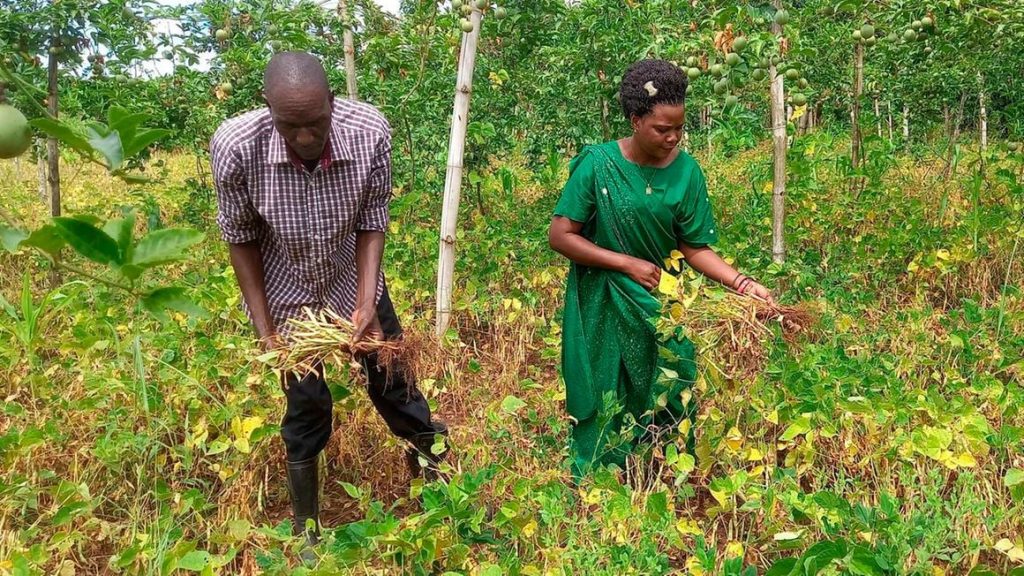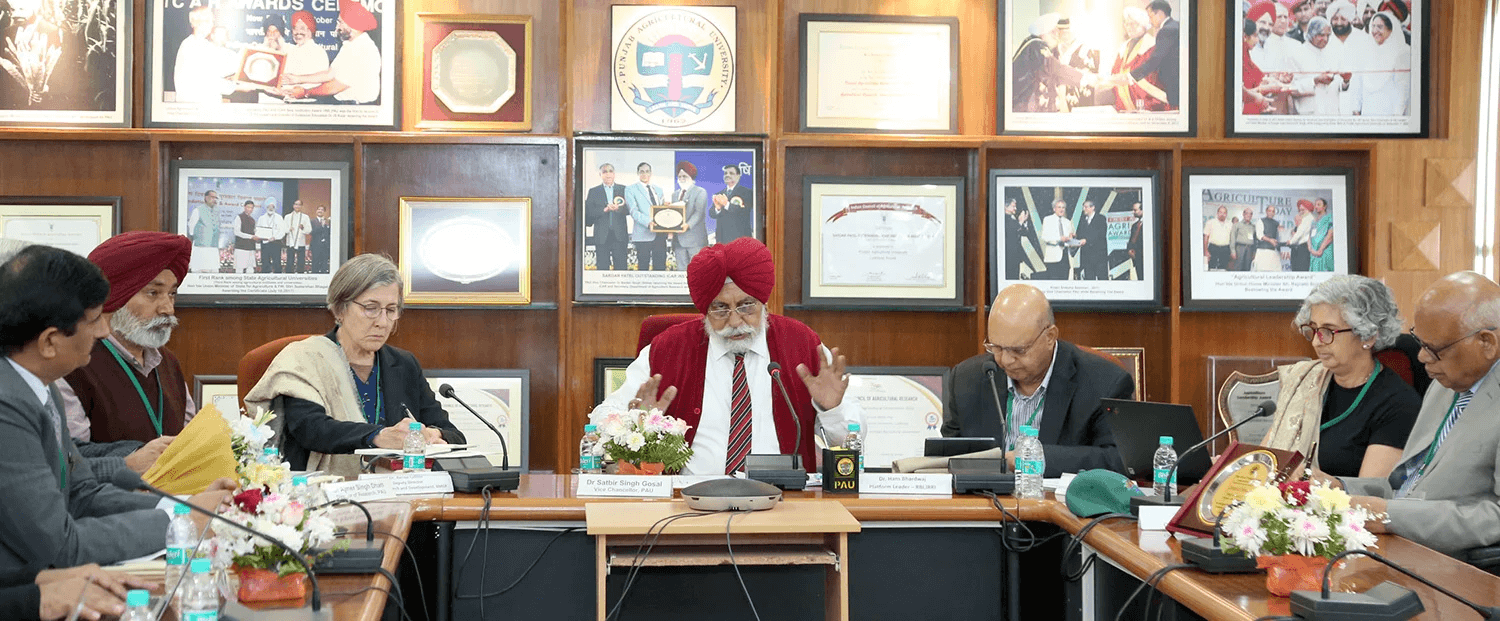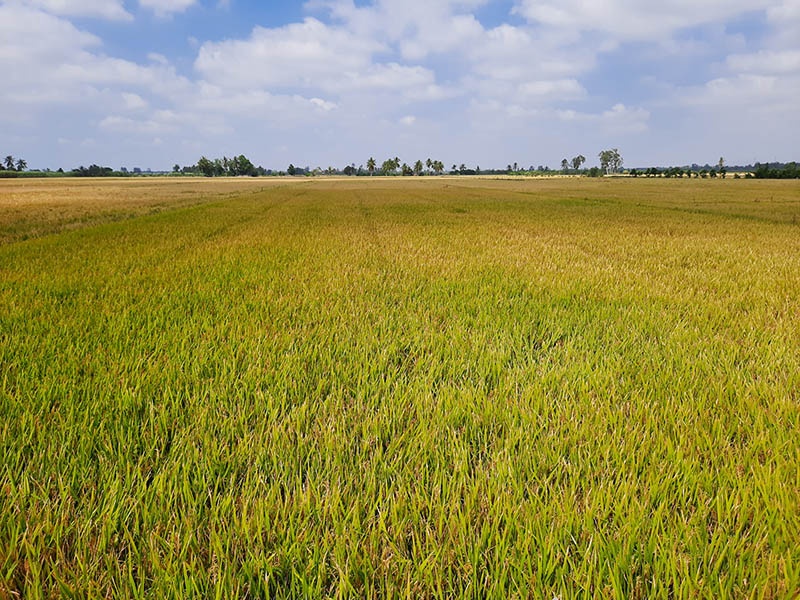Tags
Scientists urge alternatives to maize with rice, beans varieties emerging

Robert Loda (L) and Olivia Asinde harvesting narobean6 in their garden in Mayuge District, Uganda. PHOTO | BAMUTURAKI MUSINGUZI | NMG
Farmers in Africa have to reduce their reliance on maize and bring in more micronutrient-rich foods to address both nutritional needs and climate change challenges.
In a study titled Stakeholder-driven transformative adaptation is needed for climate-smart nutrition security in Sub-Saharan Africa, researchers push for fruits, vegetables, and crops such as cassava, millet, and sorghum.
Led by Dr Stewart Jennings from the University of Leeds, the study warns that climate change and over-dependence on maize could lead to increased “food and nutrition insecurity” in the region.
Co-author Prof Jennie Macdiarmid from the University of Aberdeen warns against solely focusing on increasing calorie production, stressing the importance of adopting climate-smart strategies to avoid health issues due to poor nutrition.
According to the scientists, diversifying into soybean production as a resilient option, and increasing the production and consumption of animal-based products could enhance diets.
The study urges integrated policies across government departments and advocates a deliberate approach in agriculture to incorporate nutritional needs.
Meanwhile, scientists have developed rice lines resistant to Rice Yellow Mottle Virus (RYMV) using genome editing techniques.
RYMV is a virus that has long plagued small-scale farmers in Africa, causing substantial crop losses and posing a severe threat to food security.
A research team led by Dr Yugander Arra at Heinrich Heine University Düsseldorf said the resistant rice varieties mark a crucial step towards creating locally adapted elite varieties for African small-scale food producers.
RYMV, transmitted through beetles and leaf-to-leaf contact, has been endemic to Sub-Saharan Africa and Madagascar since 1966. Over the years, it has proven to be a significant menace to farmers across Africa, where the majority cultivate plots of less than one hectare.
Losses ranging from 10-100 percent of rice harvests occur regularly, exacerbating the struggles of farmers.
There is no effective protection against the virus.
“The only real protection is to develop rice varieties that possess a resistance gene against RYMV, which would make the plant invulnerable,” says Dr Arra, lead author of the study published in Plant Biotechnology Journal.
Work focused on three known resistance genes, namely RYMV1, RYMV2, and RYMV3 to emerge with mutations in RYMV2 which proved sufficient for resistance.
The resistant form, RYMV2, found in poor-yielding African rice varieties (Oryza glaberrima), encodes an important protein from the pores of the cell nucleus, resulting in a broad spectrum of resistance not only to viruses but also to bacteria and fungi.
The resistance trait is attributable to the loss of a non-essential gene function. By switching the gene off completely, the plants behave normally but become resistant to the virus.
The next phase of the research aims to apply the same editing process to relevant African elite varieties, with the ultimate goal of making these resistant varieties accessible to small-scale producers.
Over in Eastern Uganda, farmers are revelling in biofortified bean variety Narobean, which was introduced in 2018.
“The Narobean6 variety was released for drought tolerance and early maturity. It has higher iron and zinc content. It is good for pregnant and lactating mothers, as well as children,” Dr Clare Mukankusi, a Ugandan plant breeder and senior scientist, who heads Pan-Africa Bean Research Alliance (Pabra), said.
The beans also take a shorter time in cooking, saving fuel, and given that much of the fuel used is firewood or charcoal, this reduces destruction of the environment.
This bean variety and improved farming strategies have provided a 36 per cent boost in household income for Ugandan farming families.
A partnership between National Agricultural Research Organisation (Naro) and Pabra has also helped supply relief agencies with resilient bean varieties used in drought response in other African countries.
According to the International Center for Tropical Agriculture (CIAT), beans are a popular food crop in Africa. They also provide an affordable source of protein in a region that still struggles with high rates of malnutrition.
But climate stress has prompted an intensive collaboration involving African scientists and their colleagues at a major bean research center in Cali, Colombia to develop heat and drought-tolerant varieties for African farmers.
“The new varieties have genetic inheritance for short time cooking,” says Dr. Stanley Tamusange Nkalubo of the National Crops Resources Research Institute.
“We breed for resistance to one or two diseases,” Nkalubo added.
Mukankusi says they have already shared the materials with Burundi, Ethiopia, Kenya, Tanzania and Rwanda and the countries are following similar processes as Naro in Uganda.
“The beans will not be any different biologically from the normal beans we know. They will only perform better in terms on cooking time, iron ad zinc content as well as yields,” she added.
https://www.theeastafrican.co.ke/tea/science-health/scientists-urge-alternatives-to-maize-4497684Published Date: January 20, 2024






